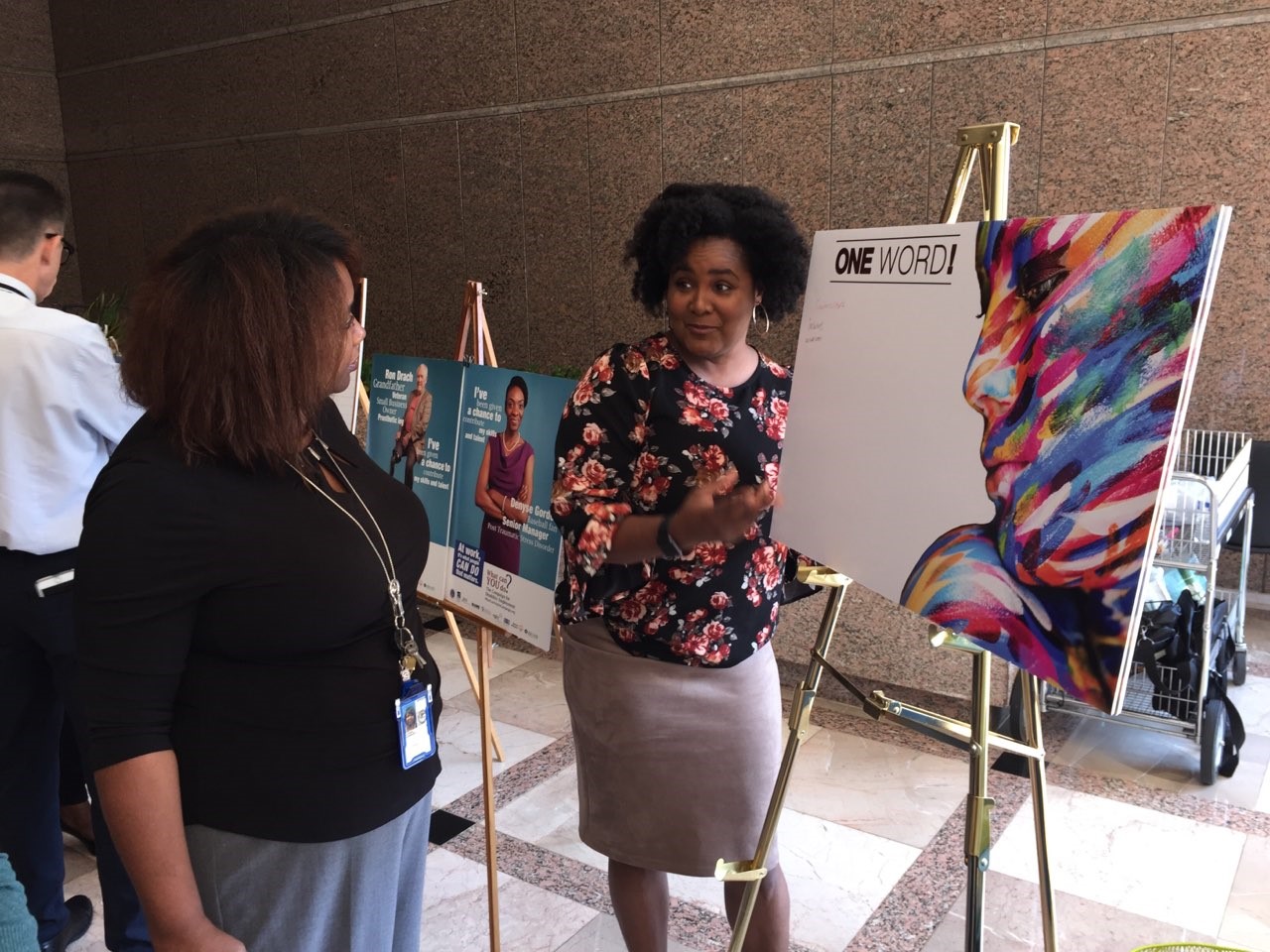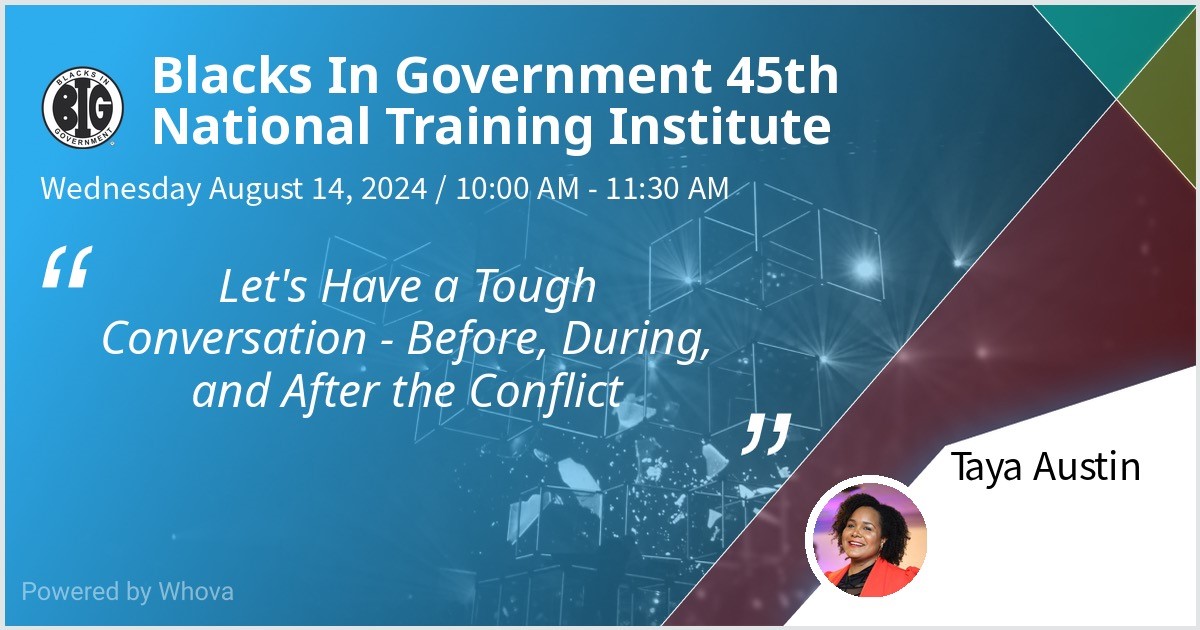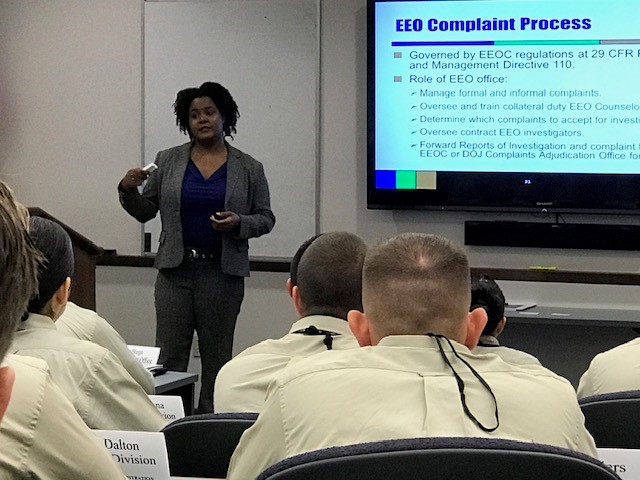Civil Rights in Law Enforcement
This is the 15th installment in a series of profiles featuring DEA special agents, diversion investigators, chemists, and more. Learn about the tough but fulfilling, fascinating, and vital work these DEA personnel do, as well as the many different ways to get involved in fighting drug misuse. For our 15th profile, we will be interviewing Equal Employment Opportunity Specialist Taya.
What motivated you to join DEA?
Growing up in the suburbs of Washington, D.C., a career in public service always appealed to me. With a passion for true crime, forensics, and investigations, law enforcement seemed like the perfect fit. However, having never passed a physical ability test, becoming a special agent was not in the cards. I mistakenly believed that everyone at DEA had to be an agent. But I was surprised to find a vacancy for an accounting position on USAJOBS. That’s when I realized there were many ways to contribute to DEA’s important mission. I started my career at DEA as an accounting technician. I am grateful for the opportunities that led me to find my true path in civil rights. I am proud of my contribution to the DEA mission as a business operations employee.

What does an average day as an Equal Employment Opportunity Specialist look like for you?
One of the reasons that I love my job is that every day is different. My neutral role in complaint processing involves everything from educating employees on their rights and responsibilities to working with high-ranking officials to attempt resolution. What I enjoy most is assisting individuals in resolving conflict. As a Department of Justice (DOJ) mediator, I am entrusted to help employees across the department resolve EEO complaints. For the DOJ Diversity Inclusion Dialogue Program (DIDP), I facilitate conversations with DOJ employees regarding sensitive topics such as race, sex, and disability. It is through this dialogue that employees can learn the value of our diversity and ways to promote an inclusive workplace. More recently, I have trained employees on conflict management techniques aimed at giving employees the confidence and tools to navigate conflict effectively.
What has been your proudest moment as an Equal Employment Opportunity Specialist thus far?
Being invited to present at the 2024 Blacks in Government National Training Institute. Being able to represent DEA on a national stage is not an honor that I take lightly. An increasing number of organizations recognize the conflict resolution best practices that are being developed at DEA and want to share that knowledge with their employees.
How can young people who wish to become an Equal Employment Opportunity Specialist best prepare themselves for the job?
Technical proficiency such as a solid understanding of EEO regulations and anti-discrimination laws is essential for success in this career. However, there’s another set of skills often overlooked but equally important in any profession - emotional intelligence. This helps an EEO Specialist recognize and manage their emotions which results in leading constructive communications, strategic thinking, and better decision-making. Emotional intelligence helps in managing stress, sensitive topics, and responding to challenges in high-pressure situations. An EEO Specialist cannot be afraid of conflict. All leaders should be able to approach disagreements appropriately to prevent escalation and help with constructive solutions. Good leaders view conflict as an opportunity for innovation. Finally, cultural competence helps to create an inclusive environment where employees from diverse backgrounds feel valued and respected. Having this competency strengthens trust and sets the tone for a healthy workplace. EEO Specialists are responsible for modeling these behaviors so employees can experience the benefits of a workplace that fosters positive leadership and a sense of belonging for all.

The synthetic opioid fentanyl – often mixed into other drugs – is now responsible for tens of thousands of American deaths per year. How has the fentanyl epidemic changed your job?
The fentanyl epidemic has increased the level of danger and uncertainty that many of our employees are exposed to in their jobs. More than ever, law enforcement professionals deserve a discrimination-free work environment where everyone is treated with respect and has equal opportunity. I uphold these civil rights in the workplace so law enforcement professionals can focus on saving American lives.
Aug. 1, 2023 Profile: Meet Special Agent Dave
Aug. 17, 2023 Profile: From Searching Tunnels to Undercover at a Rave...
Aug. 31, 2023 Profile: Fighting the Jalisco Cartel as an Intelligence Analyst
Sept. 14, 2023 Profile: Working With His Wife to Dismantle Drug-Peddling Prison Gang
Sept. 28, 2023 Profile: Meth Hidden in a Gas Tank? Helping DEA as a Chemist
Oct. 18, 2023 Profile: From Teaching English to Helping Capture El Chapo
Nov. 2, 2023 Profile: Phone Forensics: Diving Into Digital Evidence
Nov. 16, 2023 Profile: Inside the World of Chemistry, Calculations, and Clandestine Labs
Jan. 4, 2024 Profile: Training Female Law Enforcement Officers in Afghanistan and Saudi Arabia
Jan. 18, 2024 Profile: Getting the 'Friday Scaries' as a Strategic Analyst
Feb. 8, 2024 Profile: Marijuana Scheduling Is a Hot Topic. Hear From a DEA Pharmacologist Who Collects Data to Schedule Drugs
Mar. 11, 2024 Profile: Classrooms to Conferences: Connecting the Community to Fight Drug Misuse
May 9, 2024 Profile: Tackling Cyber Crime With DEA's Special Ops
July 10, 2024 Profile: How Drugs Can Be 'Hidden in Plain Sight'

